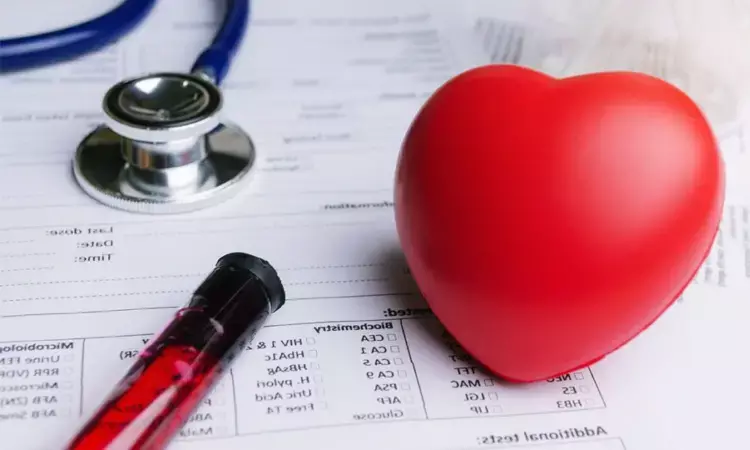- Home
- Medical news & Guidelines
- Anesthesiology
- Cardiology and CTVS
- Critical Care
- Dentistry
- Dermatology
- Diabetes and Endocrinology
- ENT
- Gastroenterology
- Medicine
- Nephrology
- Neurology
- Obstretics-Gynaecology
- Oncology
- Ophthalmology
- Orthopaedics
- Pediatrics-Neonatology
- Psychiatry
- Pulmonology
- Radiology
- Surgery
- Urology
- Laboratory Medicine
- Diet
- Nursing
- Paramedical
- Physiotherapy
- Health news
- Fact Check
- Bone Health Fact Check
- Brain Health Fact Check
- Cancer Related Fact Check
- Child Care Fact Check
- Dental and oral health fact check
- Diabetes and metabolic health fact check
- Diet and Nutrition Fact Check
- Eye and ENT Care Fact Check
- Fitness fact check
- Gut health fact check
- Heart health fact check
- Kidney health fact check
- Medical education fact check
- Men's health fact check
- Respiratory fact check
- Skin and hair care fact check
- Vaccine and Immunization fact check
- Women's health fact check
- AYUSH
- State News
- Andaman and Nicobar Islands
- Andhra Pradesh
- Arunachal Pradesh
- Assam
- Bihar
- Chandigarh
- Chattisgarh
- Dadra and Nagar Haveli
- Daman and Diu
- Delhi
- Goa
- Gujarat
- Haryana
- Himachal Pradesh
- Jammu & Kashmir
- Jharkhand
- Karnataka
- Kerala
- Ladakh
- Lakshadweep
- Madhya Pradesh
- Maharashtra
- Manipur
- Meghalaya
- Mizoram
- Nagaland
- Odisha
- Puducherry
- Punjab
- Rajasthan
- Sikkim
- Tamil Nadu
- Telangana
- Tripura
- Uttar Pradesh
- Uttrakhand
- West Bengal
- Medical Education
- Industry
Alcohol consumption not linked to ventricular arrhythmias, but may precipitate SCD

Australia: Total alcohol intake had no connection with VA in this new mostly white cohort research, but SCD had a U-shaped correlation.
This study was conducted by Samuel J. Tu and the team and the data were published in the journal Heart Rhythm on 20th December 2021.
Although prior research has shown a U-shaped link between alcohol and sudden cardiac death (SCD), there is no information on the impact of alcohol in incident ventricular arrhythmias (VAs). The goal of this study was to assess correlations between total and beverage-specific alcohol intake and incident VA and SCD by using data from the UK Biobank.
For this study, the alcohol intake reported at baseline was computed as 8 g of alcohol per week in UK standard drinks. Hospitalization and death records were used to analyze outcomes. In multivariate Cox regression models, alcohol intake was modeled as limited cubic splines and compensated for regression dilution bias.
The key findings of this study are:
1. Researchers followed 408,712 middle-aged people (52.1 % of whom were female) for an average of 11.5 years.
2. There were 1733 incident VA occurrences and 2044 SCDs. There was no evident relationship between incident VA and total alcohol intake.
3. Although increasing the use of spirits was related to an increased risk of VA, no other significant beverage-specific relationships were found.
4. Total alcohol intake was shown to have a U-shaped connection with SCD, with 26 drinks per week being linked with the lowest risk.
5. Increased consumption of beer, cider, and spirits was related to an increase in SCD risk, but increased consumption of red and white wine was associated with a decrease in risk.
In conclusion, even though according to the study there was no apparent link seen between total alcohol consumption and incident VA, additional research using precisely characterized VA and SCD episodes is needed to give more understanding into these contradictory findings.
Reference:
Tu, S. J., Gallagher, C., Elliott, A. D., Linz, D., Pitman, B. M., Hendriks, J. M. L., Lau, D. H., Sanders, P., & Wong, C. X. (2021). Alcohol consumption and risk of ventricular arrhythmias and sudden cardiac death: An observational study of 408,712 individuals. In Heart Rhythm. Elsevier BV. https://doi.org/10.1016/j.hrthm.2021.09.040
Medical Dialogues consists of a team of passionate medical/scientific writers, led by doctors and healthcare researchers. Our team efforts to bring you updated and timely news about the important happenings of the medical and healthcare sector. Our editorial team can be reached at editorial@medicaldialogues.in.
Dr Kamal Kant Kohli-MBBS, DTCD- a chest specialist with more than 30 years of practice and a flair for writing clinical articles, Dr Kamal Kant Kohli joined Medical Dialogues as a Chief Editor of Medical News. Besides writing articles, as an editor, he proofreads and verifies all the medical content published on Medical Dialogues including those coming from journals, studies,medical conferences,guidelines etc. Email: drkohli@medicaldialogues.in. Contact no. 011-43720751


